News
-
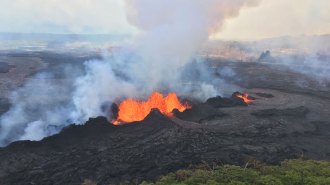 Earth
EarthDid heavy rain trigger Kilauea’s eruption? It’s complicated
A study suggests the Hawaiian volcano’s outpouring of lava was triggered by heavy rainfall in the months preceding. But some scientists are skeptical.
By Megan Sever -
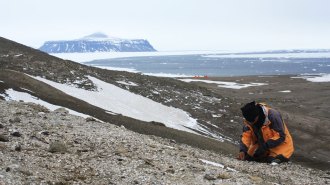 Paleontology
PaleontologyThe first frog fossil from Antarctica has been found
An ancient amphibian from Antarctica gives new insight into when the continent got so cold.
-
 Health & Medicine
Health & MedicineCOVID-19 kills more men than women. The immune system may be why
Countries with sex-specific data report more men than women are dying of the coronavirus. Women’s stronger immune response may give them a leg up.
-
 Climate
ClimateA U.S. oil-producing region is leaking twice as much methane as once thought
Satellite measurements identify the Permian Basin, a massive U.S. oil- and gas-producing area, as a large source of leaked methane to the atmosphere.
-
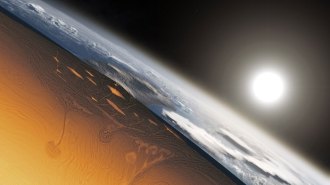 Earth
EarthPlate tectonics may have started 400 million years earlier than we thought
Magnetic minerals in ancient rocks suggest that plate tectonics may have been under way as early as 3.2 billion years ago.
-
 Health & Medicine
Health & MedicineCOVID-19 is hitting some patients with obesity particularly hard
Doctors say some of their sickest COVID-19 patients are young and obese. One study shows they have higher rates of hospital admission and death.
By Dawn Fallik -
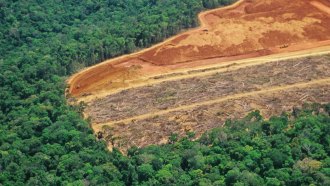 Life
LifeHow much space does nature need? 30 percent of the planet may not be enough
Nations are drafting a plan to protect 30 percent of Earth by 2030 to save biodiversity. The number reflects politics more than scientific consensus.
-
 Health & Medicine
Health & MedicineMore evidence hints that hydroxychloroquine doesn’t help treat COVID-19
A malaria drug showed no benefit over standard care in two preliminary studies examining how well hydroxychloroquine works against the coronavirus.
-
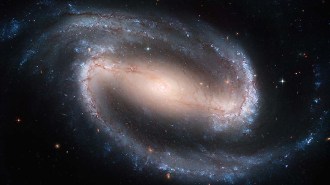 Astronomy
AstronomyHigh-speed gas collisions prevent star birth in galaxies’ bars
The spiral galaxy NGC 1300 makes few if any stars in its bright bar. Simulations suggest gas clouds colliding at high speed stunt star formation.
By Ken Croswell -
 Space
SpaceInterstellar comet Borisov has an unexpected amount of carbon monoxide
The second known visitor from outside the solar system has three times as much CO relative to H2O than any comet seen in the inner solar system.
-
 Planetary Science
Planetary ScienceUnlike Earth, the gases in Venus’ atmosphere aren’t uniformly mixed
Measurements of Venus’ atmospheric nitrogen show that a planet’s upper atmosphere doesn’t necessarily match the lower atmosphere.
-
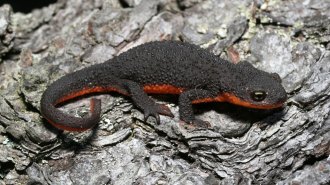 Life
LifeToxin-producing bacteria can make this newt deadly
Bacteria living on the skin of some rough-skinned newts produce tetrodotoxin, a paralytic chemical also found in pufferfish.